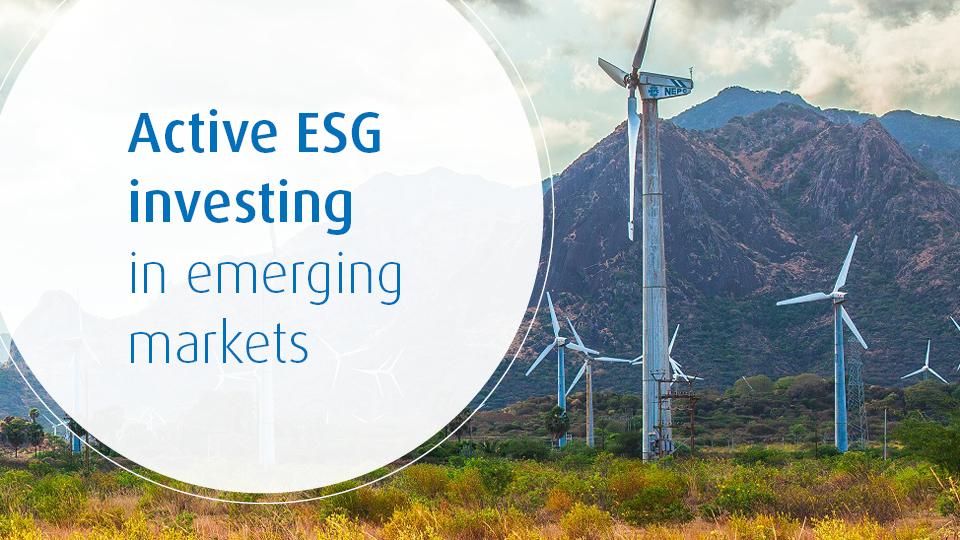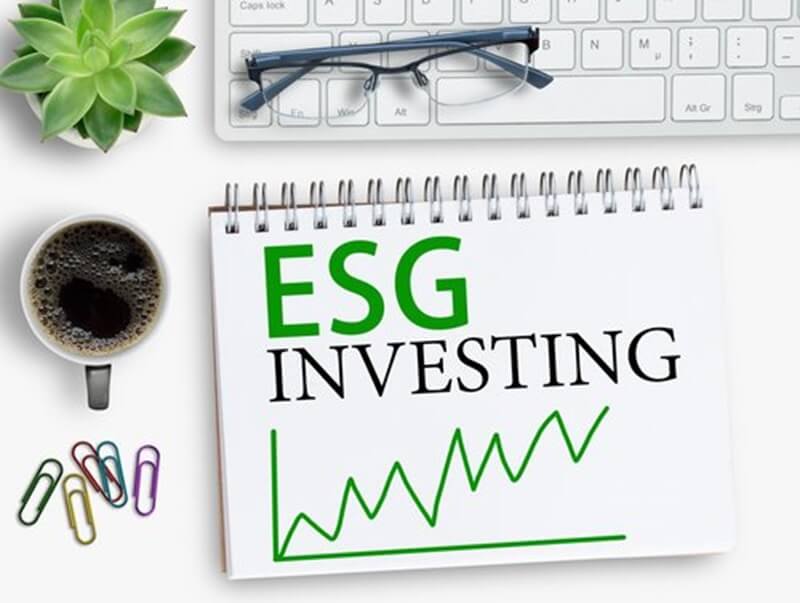**Discover the gateway to ESG investing in emerging markets: it’s a world brimming with potential yet tangled with complexity. Unearth how businesses meet environmental, social, and governance standards across varied landscapes. Dive deep into the risks and rewards these markets harbor. Gear up; you’re about to unlock investment strategies that balance profit with purpose, aligning your portfolio with the Sustainable Development Goals. Get ready to explore the transformative edge where savvy meets sustainability.
Understanding ESG Landscape in Emerging Markets
Defining ESG Criteria for International Markets
Imagine a world where your money helps the planet. It’s what ESG investing is all about. ESG stands for Environmental, Social, and Governance. Put simply, ESG criteria are a set of rules to make sure investments do good for the world. Think clean air, happy workers, and honest companies. It’s about doing well by doing good, especially in places that are just starting to grow fast.
When we talk about ESG criteria for international markets, we mean these rules but with a twist. Each place is different. What works in New York might not fit in Nairobi. So we tailor these rules to make sense everywhere. This means looking at local laws, cultures, and needs. We make sure investments help and respect every place’s unique story.
The State of Environmental Criteria and Social Governance Across Diverse Regions
Now let’s zoom in on different parts of the world. Impact investing in Asia is booming! There’s tons of work being done to clean the air and use energy smarter. In places like China and India, they’re building more windmills and solar panels. This helps the planet and gives people clean power.
Environmental criteria in Africa have to be spot on too. Countries there have beautiful nature and wildlife to protect. Investments in Africa are making sure not to harm nature. They support parks and help keep animals safe. It’s all about growing without losing what makes Africa special.
Down in Latin America, things like fair work and good health for people top the list. That’s the “S” in ESG. Social governance in Latin America means making sure workers are treated right and everyone can go to the doctor. It’s building stronger and happier communities.
Each place also has a score, like a report card. ESG performance metrics tell us if our money is doing the right thing. These metrics look at everything from how much a company pollutes to how it treats workers. We use this information to make wise choices. This way, your investments go to businesses that truly care.
To wrap up, ESG in emerging markets is all about sorting the good from the bad. It’s picking winners that help the world and watching them grow. It’s about making sure your money makes a difference. Whether that’s clean rivers in Asia, saving lions in Africa, or better lives in Latin America, ESG is the way to do it. It’s smart, kind, and forward-thinking. It’s not just about what you make, but how you make a difference.
Opportunities and Risks in ESG Emerging Market Investments
Impact Investing in Asia and Sustainable Opportunities in Africa
Asia is a hot spot for impact investing. Money here goes into projects that do good and also make profit. Think clean energy or healthcare. Africa is ripe with chances for sustainable growth too. Their focus is on basic needs—water, food, education. By putting cash into these, investors help people and can see good returns.
ESG Performance Metrics and Assessing Risks Abroad
When looking abroad, smart investors use ESG performance metrics. These numbers tell us if a company is doing right by nature and people. Are they cutting pollution? Do they treat workers and neighbors well? Knowing this helps us dodge bad risks. High scores mean a firm is less likely to hit sudden trouble that can sink its stock. It also means they care about the long road ahead, not just quick cash.
By studying ESG metrics, we get the full story on a foreign investment. We look at things like how it treats earth and folk. Is it friendly to the air and water? Does it stand up for fair work and good living? These signals guide where money should go. They point to firms that think ahead. These are the places where cash can do well.
Not just any ESG fund will do. Ones that focus on emerging markets need a closer look. They might face issues we don’t see at home. Like different laws or local troubles. So, investors must dig in. They must learn about a place’s rules and ways. This is how they guard against surprises that can hurt their wallet.
But let’s not forget the upside. Taking such savvy steps can lead us to gold mines. Ones that not only grow cash but also make real change. We get to back up-and-comers that can reshape markets. These firms can bring new tech or ways of doing things that can spread far and wide. Their success can lift whole areas, providing jobs and better lives.
Picking these winners calls for deep research and a clear eye. It’s not just about numbers. It’s also about stories. How a business fits into its world can be just as key. Do locals like what it’s doing? Will it stand the test of time? By understanding these bits, we spot the gems.
To wrap it up, ESG investing in places that are still growing can be a win-win. We must be careful, though. It calls for wisdom and patience. We have to judge the risks right. But if we do, there’s a world of good and profit out there just waiting. It’s about more than money. It’s about making an impact where it counts.
Instruments and Strategies for ESG Investment
Exploring ESG Funds Targeting Emerging Economies
When we put money into ESG funds targeting emerging economies, we help these places grow. Imagine you can grow your money while also helping others; it’s like planting a seed that grows into a strong tree, giving back more than it takes. Discover how to make a mark with your money.
Why is it smart to put money in ESG funds in growing markets? The answer is simple: It mixes doing good with smart money moves. Funds focus on companies that take care of our earth, treat people well, and run their business fairly. It’s a win-win for everybody.
In places like Asia, Africa, and Latin America, each has its own rules for business. ESG funds help guide companies to do what’s right. They look at how companies perform on ESG scores. High scores can mean less risk and more chance for your money to grow.
Finding the best ESG funds can be tricky. Look for ones that have a clear plan and show good past action. Funds should meet ESG criteria and check companies often. It’s about more than just money. It’s about making our world a better place, too.
Aligning Ethical Investment Strategies with Global SDGs
Let’s talk about tying your money moves to global goals. The Sustainable Development Goals (SDGs) are like a to-do list for our world to fix big problems by 2030. They’re about good things like clean water, less poverty, and more fairness. When we line up our investing with SDGs, we’re voting for a better future with our wallets.
But what does this look like in real life? It means choosing to put your money into projects that, for example, make clean energy or give more people jobs. It’s about using your money as a force for good, aiming to fix real issues.
To do this right, we have to think about where our money goes. Does it support clean energy? Is it making jobs? Is it fair? We have to ask these questions to be sure we’re truly helping.
Investing to match SDGs is a big step in the right direction. It isn’t just morally good; it can lead to smart money growth. People and our earth benefit when investors think long-term. They bet on a better tomorrow and can do well when companies focused on good do well.
In summary, when we pour our funds into ethical investment strategies, we’re not just thinking about today. We’re aiming for a future that shines bright for everyone. With smart choices, our investments can help write a story of hope for people and our planet. That’s the real gold at the end of the rainbow.
The Future of ESG Investing in Emerging Markets
Emerging Market Debt and Green Bonds: A Synergistic Approach
Green bonds are a big deal in places that grow fast. They help these places help the earth. By using green bonds, these countries can make money while being kind to the environment. This is important because it shows they care about the future. With every bond they sell, they promise to use the money for good things like clean energy or saving trees.
But what is a green bond? It’s like a loan you give to a country or a company. In return, they promise to pay you back with interest. The extra special thing about green bonds is that this money has to be used for projects that are good for the planet. That’s right, only for things that help keep our air, water, and earth clean.
In Asia, Africa, and Latin America, lots of people want to invest in ways that are good for everyone. Green bonds make this easy. They let you help the planet and make some money too. Investors like these bonds because they are safe and do good. So, by buying green bonds, you’re helping places grow without hurting the earth.
Sustainability Risk Management and The Role of ESG Integration Process
Managing risks is smart, especially when it comes to investing money. We want to make sure we don’t lose what we put in. That’s where ESG comes in. ESG stands for environmental, social, and governance. It’s a way to check if an investment is safe and good for the world.
So, how does ESG do this? Well, there are these things called ESG integration processes. These are like special checklists. When investing, people look at how a company treats the planet, its workers, and how it runs itself. Companies that score high on these checklists are often safer to invest in. And when there’s less risk, there’s a bigger chance to make money in the long run.
But wait, there’s more! ESG also helps us fight big world problems, like climate change. By picking companies that care for the earth, we get to help out too. Plus, when companies see that people want to invest in good behavior, they act better. This makes the world a better place — seriously!
In places where things are changing fast, like Southeast Asia, this is key. They are growing so fast and need to make sure they do it right. With ESG, they can grow and make sure they don’t harm the planet or people. It’s like guiding them on the best path.
Now, you might ask, “Are these ESG things hard to understand?” Not really. They’re like report cards for companies, but for planet-friendliness and fairness. There are experts who measure this stuff, and they help us choose where to put our money.
To sum it up, ESG makes investing cool and caring at the same time. It’s all about making money while doing the right thing. And in fast-growing places, it’s like a super tool that helps them shine without messing up. That’s the kind of future we want, and with ESG, we’re making it happen, one investment at a time.
In this post, we dived into the complex ESG landscape of emerging markets. We looked at what ESG means across different countries and how their green and social ideals vary. Each region has its own story.
Then, we explored where the money meets the mark. We saw how Asia and Africa create chances for folks who want to do good with their cash. We also learned how to tell if these chances are solid, looking at ESG scores and other risks.
Next, we laid out the tools of the trade for ESG investing. There are funds made just for emerging economies. We talked about how to line up investing with big world goals—those SDGs everyone’s buzzing about.
Looking ahead, debt from these markets could play nice with green bonds. But that’s not all. We talked about how to manage risks and fit ESG into investment plans.
To wrap it up, ESG in emerging markets is ripe with promise. But like any investment, it comes with its own set of rules and risks. Stay sharp, and you might just help both your wallet and the world.
Q&A :
What are the benefits of ESG investing in emerging markets?
Emerging markets offer a unique investment opportunity that aligns with ESG (Environmental, Social, and Governance) principles. By investing in companies within these markets that adhere to ESG standards, investors can potentially benefit from higher growth rates and diversification. Moreover, ESG investing in emerging markets can drive positive social and environmental outcomes in regions where such impacts can be more significant.
How does ESG investing in emerging markets differ from developed markets?
ESG investing in emerging markets involves a different set of risks and opportunities compared to developed markets. Emerging markets may face more pronounced social and environmental challenges, which means responsible investing can have a more considerable impact. However, investors might also encounter less transparency and more significant governance risks. As such, thorough research and a nuanced approach are crucial in navigating ESG investing in emerging economies.
What are the challenges of ESG data availability in emerging markets?
One of the primary challenges in ESG investing within emerging markets is the paucity of reliable and standardized data. Many companies in these regions may not have the same level of ESG reporting or disclosure requirements found in developed markets. This lack of information can make it difficult for investors to adequately assess a company’s ESG performance and make informed investment decisions.
How important is ESG integration in emerging market investment strategies?
Integrating ESG criteria into investment strategies is increasingly regarded as essential for emerging market investments. This integration helps investors identify companies that are not only financially sound but also responsible stewards of the environment, are socially aware, and have sound governance practices. As such, ESG integration can be a valuable tool for risk management and may lead to long-term sustainable returns.
Can ESG investing in emerging markets contribute to sustainable development?
Yes, ESG investing can play a critical role in sustainable development, particularly in emerging markets. By directing capital toward companies that prioritize sustainable practices, investors can support initiatives that promote environmental stewardship, social well-being, and effective governance. These investments can contribute to achieving broader developmental goals such as poverty reduction, gender equality, and climate action, thereby fostering sustainable growth in these economies.






